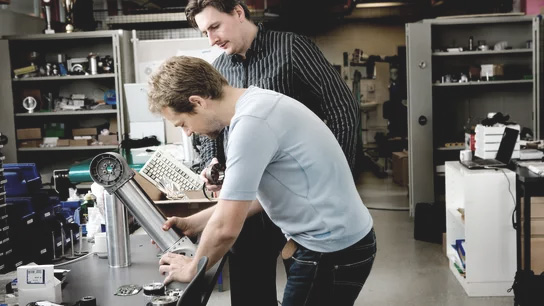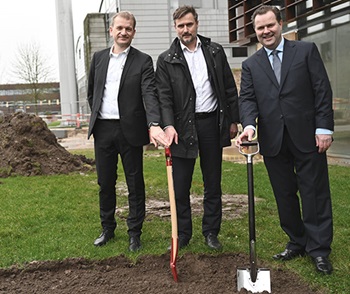
Lindøværftet, a shipyard that was part of the A.P. Møller Group, was one of the first corporations to start robotics research in Denmark. The work with robots at Lindø gradually expanded, and the need for control and handling of complexity increased over the years.
In 1986, the education in computer technology was established in collaboration between the industry and Odense Technical University, and this meeting between researchers and Lindøværftet created the cooperation AMROSE, which was anchored in Forskerparken (Science Park). The purpose of AMROSE was to develop robots and underlying software that would work in complex structures and with soft movements. This development was predicted to have great value for the Danish industry, leading Maersk to invest millions in developing and promoting this initiative.
In 2001, AMROSE closed, and the robotics research and cooperation with the industry suffered. This led to the county and the municipality to come together for a new initiative, RoboCluster, which was to once again bring together researchers and industry people from the Funen robotics environment.
RoboCluster was organized as a section under MMMI for several years, but in 2018 RoboCluster and Odense Robotics merged to further strengthen Odense’s robotics cluster.
The A.P. Moller Foundation finances a new institute
In 1995-1996, targeted work was done on a plan to establish a new international institute focusing on robot control, applied mathematics, and technical issues for automation. The Maersk Mc-Kinney Moller Institute (MMMI) was thus born in 1997 and inaugurated in 1999, where the institute also moved into its own building, which was donated by the A.P. Moller and Wife Chastine Mc-Kinney Moller's Foundation for General Purposes.
In the years after 2010, the institute established several new programs and research areas so that the institute covered the span from robotics to software, including artificial intelligence as a cross-cutting theme.
In 2019, the institute received grants to create two new educational and research units within industrial software in Sønderborg and the production of large items at the Port of Odense.
In 2019, the institute was enriched with yet another gift from the A.P. Moller Support Foundation, which donated funds for another building, which was ready for occupancy in September 2023.
